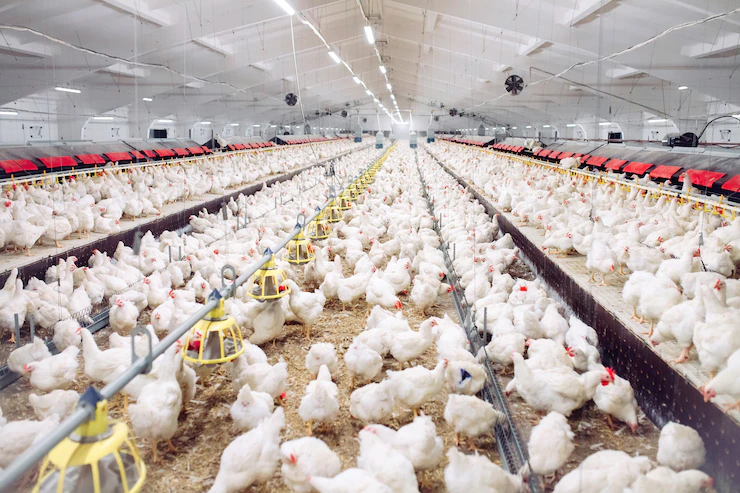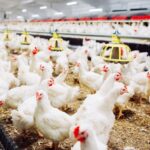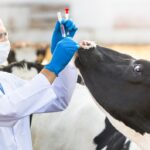Running a profitable poultry farm in South Africa involves a multi-faceted approach that includes careful planning, strategic management, and a keen understanding of the market. This guide will cover key aspects such as revenue generation, cost management, risk mitigation, strategic planning, and more to ensure the success of your poultry farming venture.
Revenue
Revenue in poultry farming primarily comes from the sale of eggs, broiler meat, and other poultry products. To maximize revenue:
- Diversified Products: Sell a variety of poultry products such as eggs, broilers, and processed chicken products.
- Value Addition: Create value-added products like organic eggs, chicken sausages, and pre-cooked chicken meals.
- Direct Sales: Engage in direct sales to consumers, restaurants, and supermarkets to capture higher margins.
Costs
Managing costs effectively is crucial for profitability. Poultry farming costs include both fixed and variable expenses.
- Fixed Costs: These include land, poultry houses, equipment, and initial stock of birds.
- Variable Costs: These cover feed, vaccines, labor, utilities, and transportation.
Cost Management Tips:
- Feed Efficiency: Optimize feed conversion ratios to ensure birds get the most nutrients from their feed.
- Bulk Buying: Purchase feed and other supplies in bulk to benefit from discounts.
- Energy Efficiency: Use energy-efficient equipment and renewable energy sources to reduce utility costs.
Risks
Poultry farming involves various risks such as disease outbreaks, market fluctuations, and environmental factors. Mitigate risks by:
- Biosecurity: Implement strict biosecurity measures to prevent disease outbreaks.
- Diversification: Diversify income sources by raising different poultry breeds or integrating crop farming.
- Insurance: Invest in agricultural insurance to cover losses from unforeseen events.
Strategy
A well-defined strategy is essential for the long-term success of a poultry farm. Key components include:
- Market Research: Continuously monitor market trends to adapt to consumer preferences and demands.
- Sustainable Practices: Adopt sustainable farming practices to ensure long-term productivity and environmental protection.
- Quality Control: Maintain high standards of quality to build a strong reputation and ensure customer loyalty.
Efficiency
Operational efficiency can significantly reduce costs and increase productivity. Enhance efficiency by:
- Modern Equipment: Invest in modern feeding, watering, and egg-collection systems.
- Labor Management: Train workers to ensure efficient farming practices and animal care.
- Automation: Use automation technology to streamline operations such as feeding, watering, and temperature control.
Productivity
High productivity is key to a profitable poultry farm. Focus on:
- Optimal Conditions: Maintain optimal living conditions, including temperature, ventilation, and lighting, to promote bird health and productivity.
- Breeding Programs: Implement effective breeding programs to enhance the quality and productivity of your flock.
- Health Management: Regularly monitor and manage the health of your birds to prevent diseases and maximize production.
Market
Understanding market dynamics is critical for the profitability of your poultry farm.
- Market Analysis: Conduct regular market analysis to understand demand, price trends, and consumer preferences.
- Branding: Develop a strong brand identity to differentiate your products in the market.
- Export Opportunities: Explore export opportunities to access higher-paying international markets.
Financial Management
Effective financial management ensures the sustainability and growth of your poultry farm.
- Budgeting: Create and adhere to a detailed budget to manage expenses and revenues.
- Record Keeping: Maintain accurate records of all transactions, production data, and financial statements.
- Cost-Benefit Analysis: Regularly perform cost-benefit analyses to evaluate the profitability of various practices and investments.
Growth
To ensure long-term growth, focus on expanding operations and diversifying income streams.
- Expand Flock Size: Gradually increase the size of your flock to boost production.
- New Markets: Explore new markets for your products, including niche markets for organic or free-range poultry.
- Allied Ventures: Consider allied ventures like poultry processing or agritourism to diversify income.
Investment
Investment in technology, infrastructure, and human resources is essential for growth and efficiency.
- Modern Facilities: Invest in modern poultry housing and equipment to improve efficiency and productivity.
- Cold Storage: Develop cold storage facilities to preserve product quality and extend shelf life.
- Training: Invest in continuous training for your workforce to improve productivity and efficiency.
Funding
Access to adequate funding is crucial for the success of your poultry farm.
- Government Grants: Explore government grants and subsidies available for poultry farmers.
- Bank Loans: Secure bank loans for large investments in infrastructure and equipment.
- Private Investors: Attract private investors by showcasing the farm’s profitability and growth potential.
Strategic Planning
Strategic planning involves setting long-term goals and devising plans to achieve them.
- Vision and Mission: Define a clear vision and mission for your poultry farm.
- SWOT Analysis: Conduct SWOT analysis to understand strengths, weaknesses, opportunities, and threats.
- Action Plan: Develop a detailed action plan with timelines and milestones to achieve your strategic goals.
By focusing on these aspects, poultry farmers in South Africa can navigate the complexities of the farming business and achieve sustained profitability. Effective management, strategic planning, and continuous improvement are key to running a successful poultry farming operation.
Join 'Farmers Mag' WhatsApp Channel
Get the latest Farming news and tips delivered straight to your WhatsApp
CLICK HERE TO JOIN






